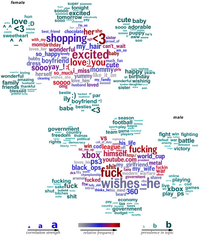
Is online self‐regulatory training effective in weight control? A pilot experiment on adolescence obesity during coronavirus‐19 lockdown
Sign Up to like & getrecommendations! Published in 2022 at "Brain and Behavior"
DOI: 10.1002/brb3.2772
Abstract: Studies have shown that obesity is associated with decreased executive function. Impaired executive functions lead to poor self‐regulation, which in turn may result in persistence of unhealthy behaviors, including eating behaviors, throughout life. Increasing self‐regulation… read more here.
Keywords: self regulatory; training effective; self regulation; regulatory training ... See more keywords

An online self-organizing algorithm for feedforward neural network
Sign Up to like & getrecommendations! Published in 2020 at "Neural Computing and Applications"
DOI: 10.1007/s00521-020-04907-6
Abstract: Feedforward neural network (FNN) is the most popular network model, and the appropriate structure and learning algorithms are the key of its performance. This paper proposes an online self-organizing algorithm for feedforward neural network (OSNN)… read more here.
Keywords: network; self organizing; structure; feedforward neural ... See more keywords

Social networking and online self-disclosure as predictors of cyberbullying victimization among children and youth
Sign Up to like & getrecommendations! Published in 2020 at "Children and Youth Services Review"
DOI: 10.1016/j.childyouth.2020.105695
Abstract: Abstract With mass acceptance and use of social networking sites (SNSs), many people now regularly disclose personal information via SNSs. Self-disclosure on SNSs has been connected to higher incidences of cyberbullying, which is concerning for… read more here.
Keywords: internet sns; self disclosure; children youth; self ... See more keywords

How is negative affect associated with life satisfaction? The moderating role of online self-disclosure in China's context
Sign Up to like & getrecommendations! Published in 2018 at "Personality and Individual Differences"
DOI: 10.1016/j.paid.2018.07.002
Abstract: Abstract Although affect is widely accepted to be a critical factor in improving one's life satisfaction, little is known about how this association works. This study proposes a moderating role of online self-disclosure between affect… read more here.
Keywords: life satisfaction; self disclosure; negative affect; life ... See more keywords

Validity and reliability of an online self-report 24-hour dietary recall method (Intake24): A doubly-labelled water study and repeated measures analysis — CORRIGENDUM
Sign Up to like & getrecommendations! Published in 2019 at "Journal of Nutritional Science"
DOI: 10.1017/jns.2019.38
Abstract: [This corrects the article DOI: 10.1017/jns.2019.20.]. read more here.
Keywords: report hour; validity reliability; self report; reliability online ... See more keywords

Structural Validity of the OSA Figures Scale for the Online Self-Assessment of Fluid Reasoning
Sign Up to like & getrecommendations! Published in 2018 at "European Journal of Psychological Assessment"
DOI: 10.1027/1015-5759/a000345
Abstract: This investigation provides evidence of the structural validity related to scores from the Online Self-Assessment (OSA) Figures scale. This scale was constructed for the assessment of figural reasoning as part of an online self-assessment battery.… read more here.
Keywords: osa figures; structural validity; figures scale; self assessment ... See more keywords

Factors affecting online self-learning acceptance among older adults after the pandemic: living arrangements and gender as mediators
Sign Up to like & getrecommendations! Published in 2023 at "Educational Gerontology"
DOI: 10.1080/03601277.2023.2196497
Abstract: ABSTRACT Research on acceptance of online self-learning is regularly based on the technology acceptance model (TAM), but less has been discussed on older adults. This article expands TAM by taking living arrangements and gender as… read more here.
Keywords: acceptance; living arrangements; older adults; self learning ... See more keywords

Berger code based concurrent online self-testing of embedded processors
Sign Up to like & getrecommendations! Published in 2018 at "Journal of Semiconductors"
DOI: 10.1088/1674-4926/39/11/115001
Abstract: We propose an approach to detect the temporary faults induced by an environmental phenomenon called single event upset (SEU). Berger code based self-checking checkers provides an online detection of faults in digital circuits as well… read more here.
Keywords: code based; self; self testing; berger code ... See more keywords

Usability of Self-Management for Amputee Rehabilitation using Technology (SMART): An online self-management program for users with lower limb loss
Sign Up to like & getrecommendations! Published in 2022 at "Prosthetics and Orthotics International"
DOI: 10.1097/pxr.0000000000000152
Abstract: Background: Individuals with lower limb loss (LLL) need education to adapt to their amputation. Self-management programs provide education and supportive skills to manage health-related physical and psychological challenges. eHealth technologies, such as online platforms, are… read more here.
Keywords: self management; management program; management; limb loss ... See more keywords

Online Self-Calibration of Multiple 2D LiDARs Using Line Features With Fuzzy Adaptive Covariance
Sign Up to like & getrecommendations! Published in 2021 at "IEEE Sensors Journal"
DOI: 10.1109/jsen.2021.3053260
Abstract: The calibration techniques for a multi-sensor data fusion need to deal with the high accuracy of each sensor position to the reference frame. The point cloud data generated by low-cost LiDAR sensors possess high uncertainty,… read more here.
Keywords: calibration; covariance; online self; line ... See more keywords

Factors associated with patient-reported likelihood of using online self-care interventions: a Scleroderma Patient-centered Intervention Network (SPIN) cohort study
Sign Up to like & getrecommendations! Published in 2019 at "BMJ Open"
DOI: 10.1136/bmjopen-2019-029542
Abstract: Objectives The Scleroderma Patient-centered Intervention Network (SPIN) Cohort uses the cohort multiple randomised controlled trial design to embed trials of online self-care interventions for people living with systemic sclerosis (SSc; scleroderma). To offer interventions to… read more here.
Keywords: intervention; online self; spin cohort; patient ... See more keywords